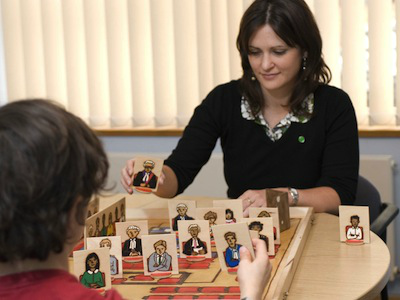
Giving evidence in court is causing thousands of child victims of sexual abuse to feel depressed, frightened and potentially suicidal, research by the NSPCC has revealed.
Last year, the charity helped 1,200 children who were concerned about giving evidence in court – an 11% rise on the number who called with concerns the previous year. Some told ChildLine their court ordeal had led them to self-harm or contemplate suicide.
This is despite the fact that a major government inquiry in 1989 said children should never be forced to give evidence in a courtroom.
A Freedom of Information request by the NSPCC, sent to 40 police forces in England, revealed that – despite recommendations that children should only be required to give evidence in a court room if they wished to – 99% of the 20,000 plus children who give evidence every year still have to do so from a court building. This is due to the lack of video link sites available.
The charity released the data today as part of its newly-launched ‘Order In Court’ campaign. It seeks to reduce the distress that children feel when participating in criminal proceedings by calling for the justice system to be more fit for children.
Peter Wanless, chief executive of the NSPCC, said: “It’s criminal that after a quarter of a century, children are still being subjected to harrowing experiences in court to get the justice they deserve.”
“If this is the view that children have of the court experience it’s likely to discourage others who have suffered to come forward.”
Some parents of children who have had to give evidence in court told the NSPCC their treatment was ‘barbaric’, saying: “I’d never seen a child in so much distress”.


 Bournemouth, Christchurch and Poole
Bournemouth, Christchurch and Poole  Hampshire County Council
Hampshire County Council  Lincolnshire County Council
Lincolnshire County Council  Norfolk County Council
Norfolk County Council  Northamptonshire Children’s Trust
Northamptonshire Children’s Trust  South Gloucestershire Council
South Gloucestershire Council  Wiltshire Council
Wiltshire Council  Wokingham Borough Council
Wokingham Borough Council  Children and young people with SEND are ‘valued and prioritised’ in Wiltshire, find inspectors
Children and young people with SEND are ‘valued and prioritised’ in Wiltshire, find inspectors  How specialist refugee teams benefit young people and social workers
How specialist refugee teams benefit young people and social workers  Podcast: returning to social work after becoming a first-time parent
Podcast: returning to social work after becoming a first-time parent  Podcast: would you work for an inadequate-rated service?
Podcast: would you work for an inadequate-rated service?  Family help: one local authority’s experience of the model
Family help: one local authority’s experience of the model  Workforce Insights – showcasing a selection of the sector’s top recruiters
Workforce Insights – showcasing a selection of the sector’s top recruiters 

 Facebook
Facebook X
X LinkedIn
LinkedIn Instagram
Instagram
This is hardly surprising as PTSD is not only as a result of one massive trauma it can also be as a result of a series of trauma’s over many years, which all form of abuse can create. For me the refusal to take such possibilities into account is in breach of safe guarding rules/laws and procedures so making the system potential guilty of emotional, psychological an institutional abuse. It also begs the question if risk assessments were done how is this procedure given the OK. Safeguarding does not exempt the system, there should never be any exceptions.